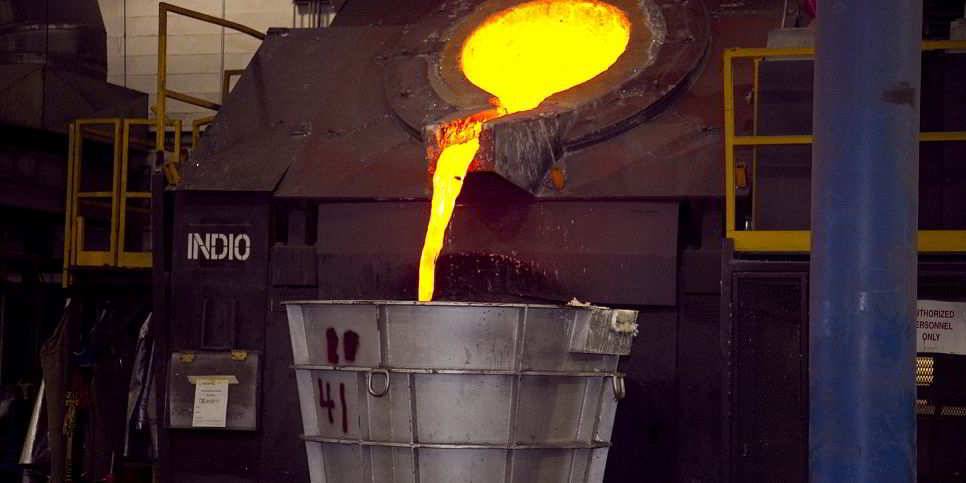California-based Silicor, which is backed by the private-equity firm Hudson Clean Energy Partners, currently has a small manufacturing facility in Ontario, where it has produced about 700 metric tonnes of polysilicon since the company was founded in 2006.
But by the end of this year, the company intends to have broken ground at a 16,000 metric tonne factory in Iceland, which is due online by 2016.
The choice of Iceland was based in large part on the country’s vibrant alumimium sector – capable of absorbing the byproducts of Silicor’s production process – and its abundant supply of cheap, renewable power from its geothermal resources.
Silicor chief executive Theresa Jester also notes that Iceland recently signed a free-trade agreement with China, meaning the company could sell its polysilicon to Chinese wafer makers with no tariffs.
The facility will be built at the port of Grundartangi, about a 45-minute drive north of the capital Reykjavik, and will employ 400 full-time workers.
Iceland’s Arion Bank has been tapped to lead debt financing for the plant, which is expected to have a $690m price tag.
Getting the factory successfully off the ground would catapult Silicor in the ranks of major global polysilicon producers.
“We’re a very small firm getting ready to commercialize in a big way,” says Jester, a multi-decade veteran of the solar industry, with a career spanning jobs at SunPower, SolarWorld, Siemens, Arco and Shell.
“I hope I can tell you a year from now that we’re under construction and almost ready to begin producing,” Jester said, speaking recently in San Francisco.
At the core of Silicor’s business case is its claimed ability to produce polysilicon for a cash cost of $9/kg (or all-in cost of $11/kg), compared to the current spot price of about $21/kg.
Silicor claims that its proprietary technology – involving dissolving MG Si and aluminium using standard equipment – has a capex cost just one-third that of the traditional polysilicon production process, and requires only one-third the energy input.
“We think it’s ideal market timing for this alternative method,” says Jester, who insists the company’s business plan is not based “solely” on rising polysilicon prices – although she does believe they will go up.
The past few years have been a difficult ride for most polysilicon producers. Last year Hemlock Semiconductor postponed indefinitely the commissioning of its nearly-completed factory in Tennessee due to "oversupply" and the threat of Chinese tariffs on US-made polysilicon.
Jester reveals that Silicor has already done extensive scouting for a planned second factory, with Iceland, Quebec, the US state of Mississippi, and Saudi Arabia all on the short list.
Like Iceland, Quebec benefits from cheap and clean electricity (from the province’s hydro resources), and it too has a large metals sector. However, labour relations in the province can be challenging, Jester acknowledges.
Mississippi also benefits from low power prices, and the state offers strong incentives for producers willing to move there, but Jester says that the US-China solar spat would need to be totally resolved before Silicor could commit to breaking ground there.

